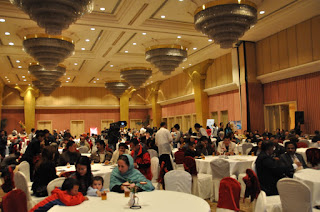Conquering Violence against Women in Nepal
 |
| PHOTO from sevensummitswomen.org |
A team of all-women Nepali summiteers accomplished a unique feat of scaling the world’s highest peak in 2008 to clamor for women’s equality and education. Four years later, it seemed that conquering Mt. Everest was easier than eradicating violence against women and gender gap in Nepal.
As the new republican state cheered for women summiteers Shushmita Maskey, Shaili Basnet, Nimdoma Sherpa, Maya Gurung, Poojan Acharya, Usha Bista, Asha Kumari Singh, Nawang Futi Sherpa, Chunu Shrestha and Pema Diki Sherpa, their campaign for women’s opportunity rights and education still remains an elusive dream.
The 2012 World Economic Forum’s Global Gender Gap ranked Nepal in 123 out of 135 countries with one of the lowest enrolment in tertiary education. The female literacy rate is 48% compared to male literacy rate of 73%. Though there was consideration representation of women in the erstwhile Constituent Assembly, not a single female head of government has elected till date.
While the state made a remarkable legislation that allowed women to inherit property at birth and give their children citizenship rights, the upsurge of incidents of women violence in Nepal is a matter of worry.
For an example, there was news recently from rural Achham district about a woman who brought on an ambulance to one of the hospitals in a state of unconsciousness and badly bruised - a typical case of domestic violence. Her story was all over the local newspapers without any sensitivity or respect to her private life. Her relatives claimed that she was equally to be blamed. Another incident happened in Mohanpur VDC-5 of Saptari where a 65-year-old woman was tortured physically on allegations of being a witch. Of the number of women who live in fear of violence, only 10 percent come in contact with the authorities to report their victimisation.
Action Aid's Mona Sherpa is concerned that such women have no real recourse to justice. According to the agency's recent study in Nepal's Siraha district, only two out of 18 cases are registered with the police authorities. “There was the recent well-known case of Suntali Dhami, a woman police constable who was gang-raped by six of her own colleagues. Three of them walked free after being presumed innocent because they had not consumed alcohol. What kind of justice is this?" she asked.
The failure of the state authorities to react to criminal cases as prescribed by law and resorting to ‘mediation’ processes outside the criminal justice system contributes to widespread impunity for the perpetrators, triggering the prevalence of violence against women and girls across the Nepali society.
Victims of these kinds of violence suffer a range of health problems; their ability to earn a living and to participate in public life is diminished. Their children are significantly more at risk of health problems, with poor school performance and likely to develop behavioral disturbances as they grow up.
The UN Department of Public Information states that the cost of intimate partner violence in the United States alone exceeds $5.8 billion per year: $4.1 billion goes into healthcare services, while productivity losses account for nearly $1.8 billion. A 2004 study in the United Kingdom estimated the total direct and indirect costs of domestic violence, including pain and suffering, to be £23 billion per year or £440 per person.
While Nepal has created a national database on Gender Based Violence Information Management System (GBVIMS) at the Women's Commission to document violence against women, this fails to address the serious economic consequences of gender-based violence for the country.
Violence against women is one of the most pervasive of human rights violations, denying women’s equality, security, dignity, self-worth, and their right to enjoy fundamental freedoms. It is an epidemic that is not confined to a specific culture, region or country. The roots of violence against women lie in persistent discrimination and exploitation against women.
In its constitution, Nepal has guaranteed women's rights as fundamental right. The Domestic Violence (Offence and Punishment) Control Act, 2009 is one of the major significant legislation to constitutionally guarantee rights to women and that the government of Nepal is committed towards the implication of the International Human Rights in national legislation.
Currently, hundreds of people are staging a sit-in protest fronting the Prime Minister´s residence in Baluwatar demanding justice for women victims of violence, rape and other forms of abuse. Tagged as “Occupy Baluwatar” campaign, this has encouraged some victims to come out in the open and the solidarity has gained momentum and increased its presence in the international media.
Prime Minister Dr. Baburam Bhattarai has pledged “zero tolerance” to violence against women and girls, saying that action will be taken against all those involved in violence, atrocities and other kinds of discriminations against women in the country. However, his words are yet to be translated into deeds.
As the state fails to hold perpetrators of violence accountable of their crimes, this not only encourages further abuses, it also gives a message that violence against women is acceptable.
This article appeared in Nepalnews on January 30,2013
PHOTO from sevensummitswomen.org


Comments
Post a Comment